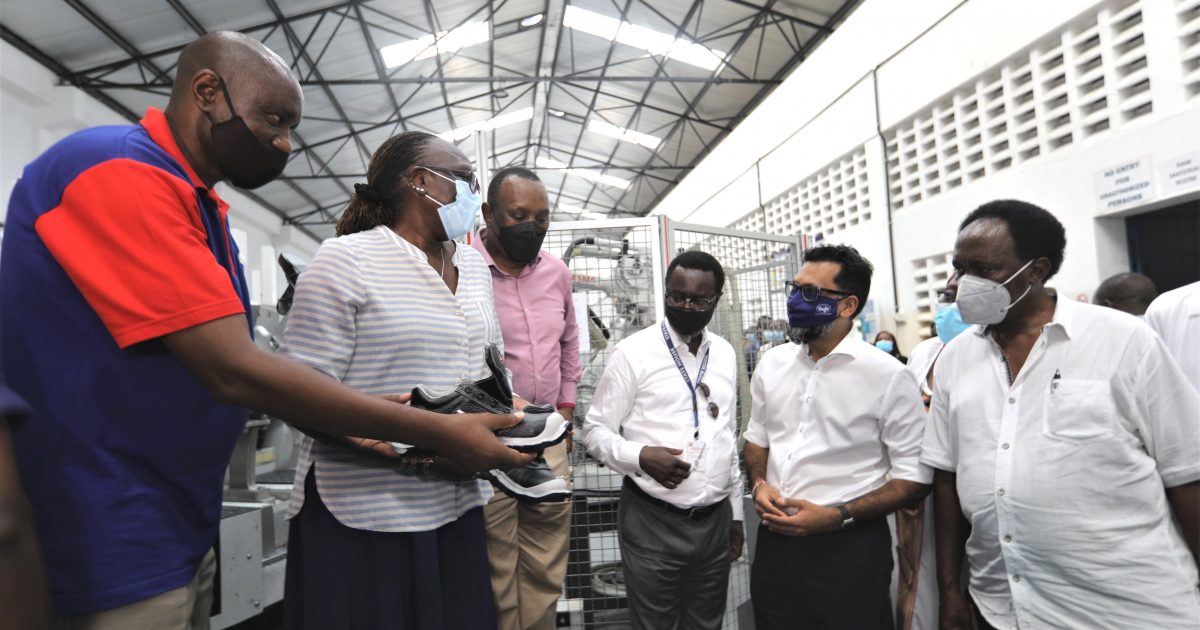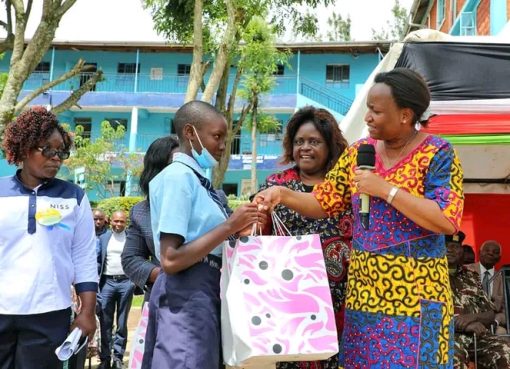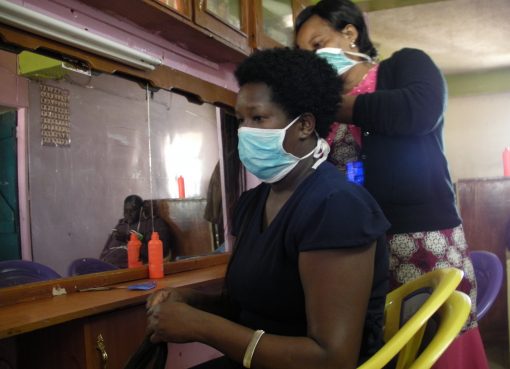The government is keen to implement initiatives aimed at boosting local manufacturing and industrial development.
Cabinet Secretary (CS) for Industrialization, Trade and Enterprise Development, Betty Maina, says the government is alive to the fact that sustainable industrialization, especially in the manufacturing sector has the potential to create employment and fight poverty.

She said the country is poised to be a giant in the manufacturing and Industrialization sector in Africa, as it scales-up its efforts to implement manufacturing, as part of the ‘Big Four’ agenda.
The CS noted that four pillars of the ‘Big Four agenda championed by the government are food security, affordable housing, universal health care, manufacturing and job creation geared towards transforming the economy.
“Since 2017, the government has been implementing a number of projects that have direct bearing to Kenya’s Vision 2030,” she adds.
Ms. Maina spoke in Mombasa Friday, accompanied by a team from the Presidential Delivery Unit, while on a tour of a number of manufacturing projects in the coastal region.
The CS and her team toured the Associated Vehicle Assemblers firm in Miritini, Umoja Shoes and Revital Healthcare EPZ in Kilifi County.
She noted that the formulation of the National Automotive Policy was going to be a game changer in the automotive sector, as Kenya strives to push the “Buy Kenya Build Kenya” brand.
“The Policy once fully implemented is expected to increase the number of locally produced and assembled quality products into the Kenyan market,” said Maina.
The new Policy adopted by the Cabinet at the beginning of the year, is expected to put in restrictions on the importation of various spare parts to encourage the consumption of locally produced parts.
“In order to build the local capacity, we have made restrictions in the policy for parts that must be made in Kenya whether they are tyres or batteries. As we go forward, our dream with this policy is that more parts will be made in Kenya,” said Maina.
AVA’s Operations Manager Moses Abiero stated that the new policy has seen them experience a surge in the number of vehicles they are assembling.
“Last year, we assembled around 3,000 units, but with the new policy starting to take shape in the sector, we are now looking at assembling 6,000 units by the end of the year,” said Abiero.
The firm has also established a training academy to train their employees hoping to partner with colleges and other institutions to bring out more students with the required skills for the automotive industry job market.
“We are currently working on an order of 300 vehicles for the police service expected to be done by the end of next month,” said Abiero.
The firm has seen an increase in new sales of vehicles grow by 40 per cent with the number of new assembled vehicles growing by 60 per cent to hit 20,000 last year.
The projections are to double the work force from the current 360 and also create new 5000 indirect jobs by the year 2025.
While visiting the Revital Healthcare EPZ facility, the CS noted that the pharmaceutical sector has seen a lot of innovations especially during the covid-19 pandemic.
“Our country is producing a lot of sophisticated products that we are able to export to even countries in the west, this tells us that our country has come of age and we are able to meet the global demand,” said Maina.
The CETVE ISO approved facility opened in 2008 by retired President Mwai Kibaki, manufacturing one billion medical devices annually ranging from syringes, PPEs and blood testing tubes.
“Our biggest export is the 0.5ml used to administer the covid-19 vaccine,” said Hush Meta, the facility’s head of international visitors.
The facility is planning to open up the first medical assembling plant in Africa expected to create slightly over 100,000 jobs.
During her tour at the Umoja Shoes apparel firm, CS Maina noted that the industry for a long time now has been facing a challenge of illicit trade.
She emphasized on the need to beef up security to protect the sector from unscrupulous business people.
Umoja shoes produces over 100 types of footwear products annually generating revenues to the government of up to 600 million shillings annually in terms of taxes.
The facility produces 80 million pairs of shoes annually while employing 2,500 individuals directly.
By Mohamed Hassan





